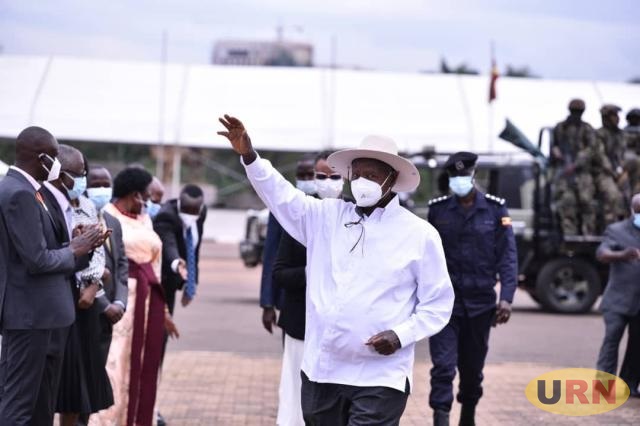Summary:
- Museveni has maintained the use of the Electronic Fiscal Receipting and Invoicing Solutions (EFRIS), for Value Added Tax collections
President Yoweri Museveni has maintained the use of the Electronic Fiscal Receipting and Invoicing Solutions (EFRIS), for Value Added Tax collections.
He, however, advised the Uganda Revenue Authority to suspend fines and penalties for non-compliant traders and instead encouraged dialogue between taxpayers and tax collectors.
This was the outcome of the long-awaited meeting between the President, and the business community, which was intended to solve concerns on the system which was rolled out by URA recently leading to the suspension of operations by the business community in Kampala.
Let Us Build Your Online Success!
We are the experts in creating visually stunning and functional websites. With reliable hosting and exceptional customer support, we bring your vision to life. Join hundreds of happy clients who trust us!
Get Started Now📞 Call/WhatsApp: +256 207 800 192
In his address to the traders at Kololo Independence Grounds, the president observed that EFRIS was not the problem and instructed the tax body to meet leaders of the business community to solve inconsistencies that come with automation.
Museveni advised URA not to force traders to use the EFRIS machine but rather be flexible and let the traders use cheaper options like mobile phone technology for the same reporting. This flexibility according to the president, should also extend to the payment period, to allow payments at the end of the financial year.
Museveni told the traders that the government’s taxation policy on importation is deliberate, to discourage imports and encourage local production.
“Importation is taking blood out of our economy, for example, Uganda imports garments of up to USD 800 million, which is almost the money we make from coffee exports annually. But if you focused on products you would be adding blood, because all this money would be retained here, and create more jobs,” he stated.
As a follow-up, he proposed another meeting with the traders on June 20, at Kololo independence grounds, to receive what would have been agreed upon between the traders’ leaders and URA.
Ibrahim Bbosa, the URA Assistant Commissioner for Public and Corporate Affairs, informed that the authority is considering intensified sensitization of traders about almost taxation because many of them even didn’t understand Value Added Tax which has been levied for more than 20 years.
However, several traders were shouting in disagreement saying the meeting did not solve the problem. The traders said they expected the president to announce the suspension of the system.
Thaddeus Musoke the KACITA chairperson, says they are going to meet with the traders and decide on a way forward.

